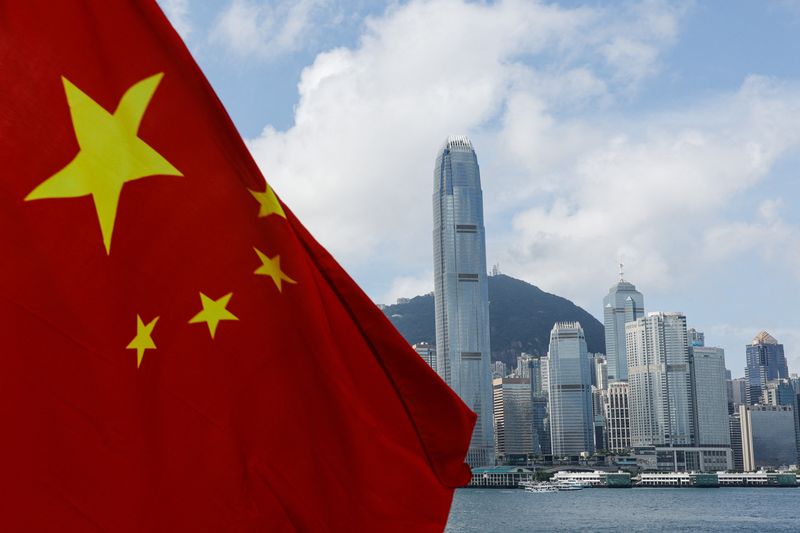BEIJING (Reuters) - China's cabinet has restricted the ability of local governments in 12 heavily indebted regions to take on new debt and placed limits on what new state-funded projects they can launch, three sources with knowledge of the matter said.
The 12 regions, which cover a wide swathe of the nation, will only be allowed to take on specified projects, such as those approved by the central government, the sources said. Other projects, such new railway stations and power plants, will not be permitted.
The sources were citing a cabinet document dated late September that was delivered to local governments and state lenders this month.
The order also specifies that debt growth of local government financing vehicles (LGFVs) should not be higher than average loan growth rates of the corporate sector in the province where the LGFVs are located, two of the sources said.
The move by China's cabinet, or the State Council, to contain local government debt has not been previously reported.
The State Council did not reply to a Reuters' request for comment.
The measures reflect an effort by China's government to balance the need to defuse local government debt risks while pumping money into major infrastructure projects to stimulate the country's flagging economy.
In practice, that means increasing debt at the national level while attempting to lower debt at the local level. On Tuesday, China approved an additional 1 trillion yuan ($137 billion) sovereign bond issue to support the economy.
According to the new order from the State Council, local governments will only be permitted to take on debt to fund major projects approved by the state council as well as a few types of projects in key areas. Those projects include the redevelopment of urban neighbourhoods and building affordable housing, two of the sources said.
HIGH-RISK REGIONS
The 12 regions were previously identified as areas with "high risks" of defaulting on debt obligations. They were 7 provinces, including Liaoning and Jilin on the border with North Korea as well as Guizhou and Yunnan in the southwest, three autonomous regions and Tianjin and Chongqing cities.
Repayment of debt due this year and 2024 by the regions will be prioritised, and debt extensions and new bank loans to replace existing loans will be allowed, the document said, according to two of the sources.
All three sources declined to be identified as the policies were confidential.
Debt-laden municipalities represent a major risk to the world's second-largest economy and its financial stability, amid a deepening property crisis, years of over-investment in infrastructure and huge bills to contain the COVID-19 pandemic.
The crash in property prices and a cash crunch have left developers in no shape to buy more land, traditionally a key source of local government revenue. Land sales in January-September were down almost 20 percent from the year-ago period.
Local government debt loads are far higher than at the central government level.
While central government debt is only 21% OF GDP, local debt reached 92 trillion yuan ($12.58 trillion), or 76% of the country's economic output in 2022, up from 62.2% in 2019. The massive piles of debt highlights local governments' financial stress, fuelling concerns of a systemic financial crisis.
Part of that is debt issued by LGFVs, which cities use to raise money for infrastructure projects, often at the urging of the central government when it needs to boost economic growth.
China's Politburo, a top decision-making body of the ruling Communist Party, said in late July said it would announce a basket of measures to reduce local government debt risks, but no detailed plans have been officially unveiled yet.

China has told state-owned banks to roll over existing local government debt with longer-term loans at lower interest rates, Reuters reported last week.
In addition, a slew of local governments - mostly debt-ridden ones such as Yunnan and Guizhou - have started selling so-called refinancing bonds this month in a special, one-time programme to replace other forms of borrowing. The bond issuance is widely believed to be part of Beijing's measures to defuse debt risks of LGFVs.
